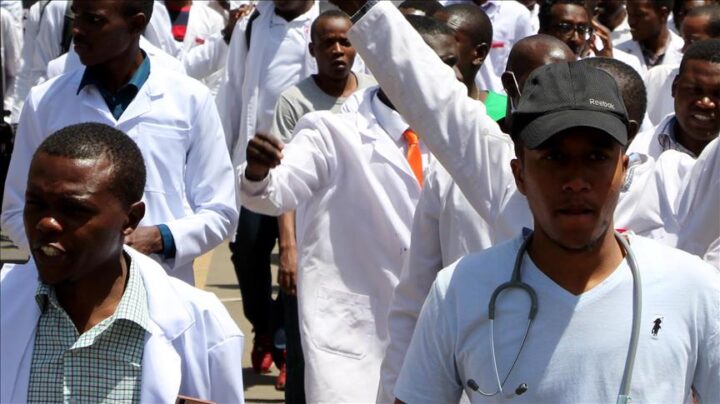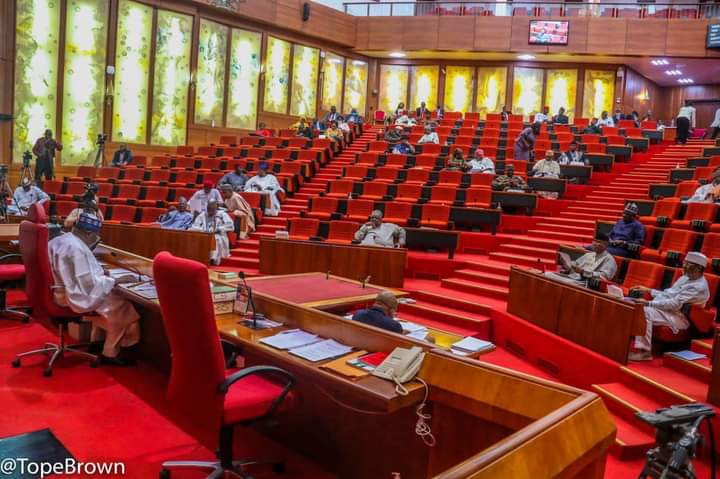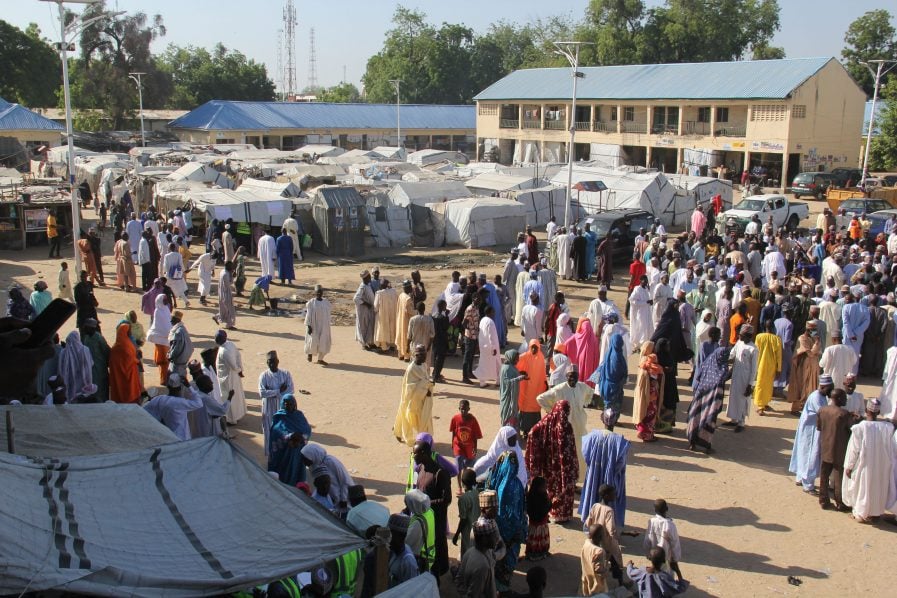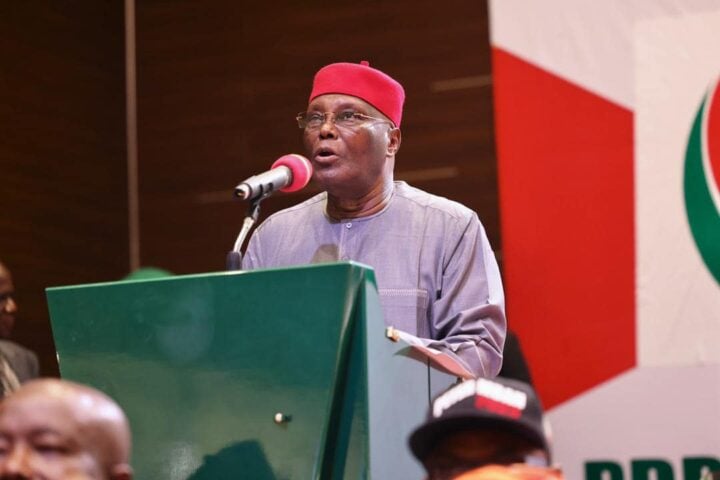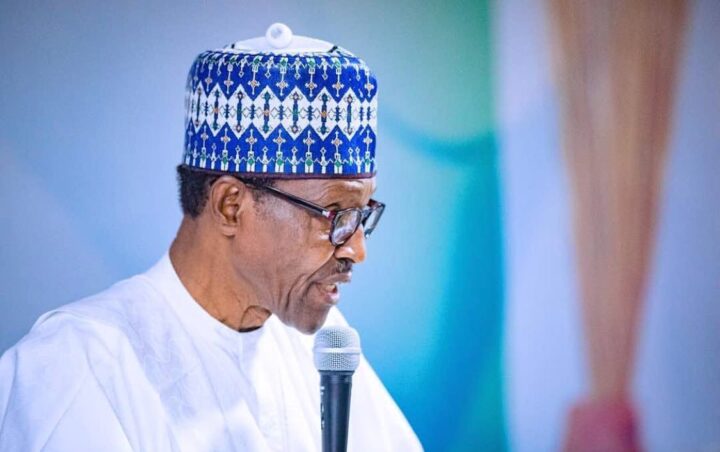The scenes of many hospitals are quite familiar — doctors walking briskly with blank stares, snappy nurses trying to figure out the sudden disappearance of a patient’s vein, hopeful and anxious looks in the waiting area punctured with the distinct smell of antiseptic in the air. But a different reality is unfolding behind the doors of the emergency rooms and wards. Health workers in Nigeria are facing a battle that leaves them mentally drained and emotionally depleted. Grappling with the challenges of providing quality healthcare while working long shifts with little pay is a nightmare many never saw coming.
A shortage of manpower in the system does not do much to comfort the doctors who have had to put up with facing life-and-death situations with limited support and resources.
Olubunmi Makinde, a doctor in a government hospital in Abuja, told TheCable that her job has been frustrating. The cost is the occasional mental breakdowns and loss of lives. But she said her passion and dreams of owning a hospital someday are keeping her afloat.
“Our system is not working; the work is much and the pay is less. Sometimes, you’re the only one on call in a day and you’re covering many units — medicine, paediatrics, A&E (accidents and emergencies), etc. After all that, you still want that doctor to come the next morning,” she told TheCable.
Advertisement
“If you have enough doctors, the work will be lesser and people will be more interested in working. If you like your profession, like me, it makes it easier. You treat a patient and she comes back to tell you, ‘oh doctor I feel much better’.
“The only challenge is that for example when you’re working and a patient is being rushed in, you’ll want to do your emergency treatment but there’ll be nothing to work with, like no drugs. That is why I say the system is failing us; you’ll feel frustrated. You want to treat someone with abdominal pain and you go for option A, there’s no option A. Even option B, no drugs.
“You find one nurse doing the work meant for two or three hands, same with doctors. When an emergency comes and it’s only one doctor on duty, and another one is being rushed in, you’ll wonder, ‘which one should I attend to? It’s like this one is okay, let me attend to this one that is more severe.’ It’s the case in most government hospitals.”
Advertisement
Sometimes, she feels ambition and passion are not enough to get her through times of losing patients she has formed bonds with.
“Just imagine you’ve been managing a patient for a while, only for you to go home and find out the patient has died. So many things will run through your mind, ‘this patient was fine before I left, what went wrong?’ But at that moment, you just have to be strong,” she said.
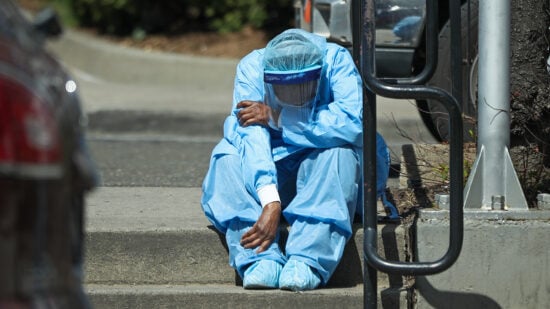
“But when you go to a little corner, in a quiet place or you go home, you reflect on your day and remember a patient, the emotions that run through you are not funny.”
A defining moment for her was when she lost a 13-year-old sickle cell patient. She recalled that the pain was deep enough to cause a mental shift, but she didn’t want to use the word “trauma” because “the journey of frustration is ahead and I’ll still see a lot”.
Advertisement
MORE MENTAL WORK THAN PHYSICAL
Makinde’s painstaking journey is not one Samson Abanni is prepared to take. He told TheCable that he has hung up his stethoscope and ward coat for a more fulfilling career path. According to him, the two years he spent in the profession is enough suffering.
“The medical profession in Nigeria does not give you a commensurate reward for your efforts. You practically go home with your job,” Abanni said.
“We’re talking about people’s lives here. All that emotional load you take it home with you. It’s complicated by the fact that a lot of people need drugs that they can’t afford, so you have to make do with what they can afford. Most of the time, you’re worried. But because health is so complicated, you still see people who can afford the drugs struggling to make it through.”
Advertisement
Abanni said the mental work is a lot more than physical work and that doctors do not get enough credit for it.
“I think no one sees the emotional work, even for those who do not cry, the work you have to put in to repress the emotions is hard. Nobody sees that part,” he said flatly.
Advertisement
“Bear in mind that you spend all of your day with people who are depressed because they know they should be at home or in their offices but they’re in bed. Then, you do your work which most of the time, you don’t have the necessary equipment to use. Then, you finish for the day but unfortunately you’re on call because there are not enough doctors. This means you have to work till the next morning. That’s irrespective of how you feel, your personal issues — financial, emotional or whatever, you have to carry other people’s burden.
“You need to have conversations with them about every aspect of their lives to know what factors are contributing to the illness, what drugs to prescribe according to their financial capability. It’s a lot of knowledge. And when you have that burden of so many patients, it just wears you down.
Advertisement
“I’m not ready to throw in my whole life for this. It’s not something you do for five years and then the regiment changes. You’re in for the long haul.”
Joshua Baba (not real name) has been a doctor for 12 years, but his situation is almost worse than that of Makinde and Abanni. He said the burden of being a doctor in Nigeria is beginning to put a strain on his marriage.
Advertisement
Baba said the job is not worth the rift in his home, but he does not have a choice because he has to cater for his family. He has thought of quitting so many times but medicine is the only thing he knows.
“The sad part of it is welfare which is a very germane issue when it comes to doctors in Nigeria. This cuts across every aspect — economical, social, security, everything. What we earn is way lesser compared to our contemporaries abroad and sometimes you’re not being paid. Some allowances are not being given to you. Even when they give it to you, it will take a year or two when the money has reduced in value,” the senior registrar in family medicine told TheCable.
“Because I’m not being paid well, I still have to take on extra jobs, do extra things to raise funds and meet up the deficit that I have. By doing that, my specialisation is falling.
“Fuel is scarce. The same challenges everyone is having, we have it as well. I need to queue up to buy fuel and still come to the hospital. I need to source cash to solve issues and still come to the hospital. It’s crazy!

“On several occasions, I’ve thought about quitting. I’ve thought about travelling abroad, I’ve thought of going into any other vocation but you know as a man, your source of livelihood is very important and what is on ground now that can take care of my family is being a doctor. So regardless of how I feel, I still have to give it some time while I work on other things but its still an option that every doctor is exploring — either to work abroad in other climes or do other businesses.”
But even the income from Baba’s extra jobs is nothing compared to the emotional depletion he feels from not spending time with his family.
“If you sincerely want to look at it holistically, it’s putting a strain on my marriage. But you know Nigerians, we have a tendency to adjust,” he chuckled awkwardly.
“After work, ideally, you should go home and be with your family. But after work, I need to go to a private hospital by 3pm. I finish by 7pm or 8pm. I give another patient an appointment for 8pm in his/her home. Before you get home, it’s 10/11 pm. Your children are asleep, your wife is sleeping, you take a shower and go to bed, you’re exhausted. You wake up by 3am to go over some notes. You’re up and ready to leave the house by 6am before anyone is really up and the cycle continues.”
GRIM OUTLOOK FOR HEALTHCARE IN NIGERIA
Although Abanni and Baba have taken different routes to tackle their problems, they both worry about one thing — the future of healthcare in Nigeria.
Abanni told TheCable that he is not the only one to take the easy way out. Many of his young counterparts are doing the same thing because “there’s no motivation to stay back”.
“I don’t blame them because it’s attractive. The pay is better, but most importantly, you have a life and you’re free. I’ll tell you that the case is not that we don’t have a lot of doctors in the country. We just don’t have a lot in the system,” Abanni said.
“Most join private practices, raise money and leave. They don’t want to join the government system that is providing healthcare for majority of Nigerians. They’re not joining it because once you enter residency, you’re committed to about five or six years and nobody wants to give that commitment to a system that does not take care of you.”
With an acute brain drain clamping down on the health system, this could give out invitations for quacks who will take advantage of the manpower shortage.
Baba predicted that there would be a spike in preventable deaths and subsequently, youths will be less interested in taking up a career in the health sector because there is no role model to look up to.
“The brain drain will hit hard in the coming years; it has come to stay. More people will migrate to greener pastures. So, if it continues like this, it’s going to affect the country directly and indirectly,” he said.
“Directly in the sense that there’ll be less manpower and less specialised personnel to address certain issues. Those that cannot afford private hospitals will have to suffer and die from conditions that could have been addressed at the level of the government hospitals.
“For the doctors who stay back grudgingly, you’ll see less dedication and passion for the health profession. When this happens there’ll be a lot of litigation, a lot of errors, people will die out of mistake. In the long run, you’ll see there’ll be a lot of issues.”
But in the midst of the struggles healthcare professionals have had to put up with, the government has repeatedly ignored their cries.
Makinde said it is hypocritical that the government gives itself credit for improving the health sector, but its officials go abroad to seek medical help.
“They come out to say they’re doing their best or that there is no money to fund the hospitals. Sometimes, they even say the doctors are enough. If that is the case, why do they keep going out to seek medical help?” she asked.
Add a comment
